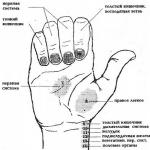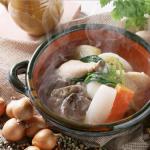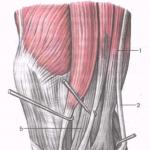The stomach hurts contractions. Cramping pain during menstruation: reasons how to alleviate the condition
A cramping stomach pain manifests a functional disorder of the digestive organ.
More precisely, severe discomfort causes short-term smooth muscle contractions.
The stomach can be unbearably sick in older people who have any diseases of the gastrointestinal tract.
But mostly paroxysmal pains disturb young men and women leading a wrong lifestyle, as a result of which their metabolism is disturbed.
Why do abdominal pains occur?
Most often, look for the causes of pain in the stomach, vomiting and diarrhea is needed in what was eaten at lunch or any other meal. Perhaps the food was stale, poisoning the body.
Because of this, he makes attempts to self-purify the toxins that irritate the digestive organs.
To help the digestive system remove harmful substances, you need to drink plenty of water and swallow activated charcoal tablets.
For every 10 kg of weight it is necessary to take 1 pill of the product.
If the discomfort in the abdomen appeared due to intoxication, then painkillers like “No-shpy” can be useless.
Pain, vomiting and diarrhea, which do not subside on the second day after the poisoning, is a reason to call an ambulance or a prompt treatment to the hospital.
Doctors will find out the reasons for the appearance of unpleasant and painful sensations in the stomach, that is, they will determine what exactly - bacteria, viruses, chemicals or food - have poisoned the body.
In bacterial poisoning, colicy pains in the stomach are complemented with liquid stool and vomiting immediately after eating any product.
The illness caused by viruses is expressed in a significant increase in temperature and the feverish condition of the patient.
In this case, specialized treatment is required. In the meantime, it is not started, you can use a lot of water, while completely limiting yourself in food.
Because chemicals get into the digestive organs, there is liquid and frequent stools, pain and torsion in the abdomen, as well as vomiting.
In this case, the sick person becomes covered with sweat, and many secretions of the salivary glands accumulate in his mouth.
To speed up the process of recovery from illness, you need to drink water all the time, refuse to eat and take the drug from the group of sorbents. The same measures should be taken in case of food poisoning.
Another diarrhea, pain in the stomach and vomiting can disturb a person with colitis and enteritis.
The first disease, which is expressed in inflammation of the rectal mucosa, is aggravated by liquid stool with mucus clots and fever, and the second is pathological processes in the small intestine and is manifested by acute diarrhea, intoxication of the body and dehydration.
The pain that often accompanies these symptoms can be eliminated by “But-Shpoi” before going to a doctor.
Why is pain accompanied by diarrhea and fever?
When, in addition to cramping abdominal pain, temperatures above 37.5 and diarrhea are observed, doctors can diagnose an infectious disease.
If the illness that has arisen after the ingestion of a harmful microorganism into the body is acute, then the pain becomes cutting. In addition to her, the sick person is worried about nausea, turning into vomiting, and severe weakness.
It may appear due to a different cause - a disease of dysentery. Then the pain will be complemented by high fever, pale skin, and possibly frequent heartbeat.
With such a serious illness at home can not cope, so you should call the ambulance crew and go to hospital for treatment.
The reasons for indisposition can be completely different if the pain is not felt upwards, but below or on the side of the abdomen.
In this case, the patient may have appendicitis, gastric ulcer or intestinal pathology. These diseases are serious and always require immediate hospitalization.
About a stomach ulcer signals such a symptom as severe pain immediately after eating.
To improve your health a little before going to the hospital, you need to stop eating dishes with a sharp and sour taste, as they aggravate the patient's condition, causing unbearable pain in the abdomen and continuous diarrhea.
Also, in case of peptic ulcer, suspension or powder of the “Almagel” preparation can be used to eliminate the first painful sensations.
Pain, concentrating in the stomach on the right side of the body, is a sign of appendicitis. In addition, the inflammation of the process of the cecum is manifested by a significant increase in body temperature and diarrhea.
When the doctor probes that area of the abdomen that causes discomfort, the painful sensations become more pronounced.
Such a disease requires absolute immobilization and administration of painkillers. It is recommended to put a hot water bottle with warm water on the patient's stomach while the ambulance is traveling.
As a result of intestinal diseases, abdominal pain is accompanied by spasms, frequent visits to the toilet, while the patient has loose stools, and an increase in temperature.
Until the doctor found out the cause of the illness and did not make an accurate diagnosis, one should sit on a special diet and forbid oneself to eat smoked foods and dishes saturated with salt and hot spices.
What to do against abdominal discomfort?
If the intensity of the pain in the abdomen is unbearable, then you should immediately call a doctor. Until he came, one should not take potent antispasmodics, which can change the clinical picture and confuse the doctor when making a diagnosis.
When suffering from severe pains in the abdomen, it is not forbidden to swallow the pill "No-shpy", relaxing smooth muscles and relieving spasm.
Being sure that the causes of the pain are in eating up the excessive amount of food, low acid content in the gastric secretion and deficiency of digestive enzymes, you can use "Mezim", "Festal" or "Creon".
When this is a consequence of a gastritis or an ulcer disease, a suspension of “Maalox”, “Almagel” or “Gaviscon” should be taken, enveloping and protecting the mucous membrane of the digestive organs from any harmful effects.
If diseases of the gastrointestinal tract occur due to excessive amounts of acid in the juice of the stomach, then diarrhea and pain should be eliminated with the help of Omez and No-shpa preparations.
Treatment of the gastrointestinal tract should be comprehensive. To do this, at the same time using drugs that contribute to the normal digestion of food, fill the lack of fluid in the body and lead to a normal state of the microflora, as well as antibiotics, if you want to destroy pathogenic microorganisms.
Diarrhea will help eliminate the drug "Imodium" or "Loperamide," but you can not get involved in its reception, as it inhibits the promotion of food through the digestive tract and thus can cause constipation.
Treatment of the stomach for cramping pain and diarrhea is important to supplement with the use of probiotics, since they contain useful microorganisms necessary to maintain normal microflora.
These include "Atsipol", "Duphalac" and "Bifiform". But the most effective are drugs that not only inhabit the microflora with the right bacteria, but also remove pathological microorganisms from there, for example, Lactofiltrum.
Since diarrhea in the disease of the gastrointestinal tract leads to dehydration of the body, it is necessary to drink "Regidron" or "Tour".
Get rid of vomiting help "Zeercal" and "Aeron". If the doctor decides that it is necessary, then antibiotics, for example, Ciprofloxacin, will need to be taken with these drugs.
What folk remedies to use for pain and diarrhea?
If diarrhea does not stop and continue to be disturbed by severe abdominal pain, then you can try the treatment of folk remedies.
Whatever the cause of the disease, tea brewed from blueberries will help to cope with it.
It not only eliminates cramping abdominal pain, but also destroys harmful bacteria.
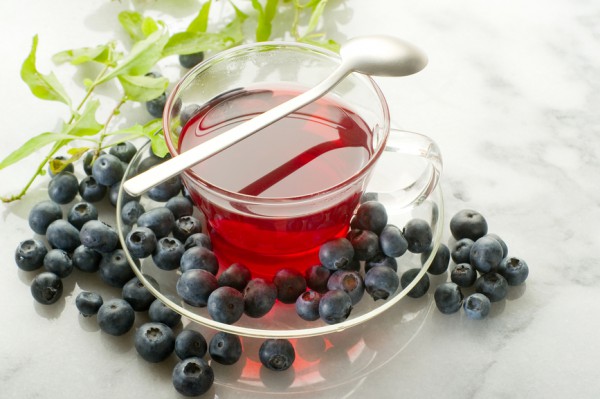
To make such a tea, you need 4 tablespoons of dried berries to make with boiling water in the amount of one cup. In half an hour, an infusion that soothes the pain can be taken by eating blueberries without fail.
To get rid of diarrhea and discomfort in the abdomen, you can apply the treatment of chicken dried stomachs.
This ingredient for the preparation of the powder must be cleaned and dried in the oven. After that, it is crushed and begin to take it, drinking water.
Pain and diarrhea are also effective in eliminating tea from herbs such as sage, chamomile, and centaury. Ready infusion is recommended to drink periodically throughout the day.
To prepare one cup of a means to reduce pain, just pour 1 tablespoon of herbal tea with water.
At home, to clean the stomach and eliminate the pain, you can use a decoction of flax seeds. This ingredient will need about 50 g, and the other - hot water - 500 ml.
Flax seeds need to hold in boiling water for at least half an hour. After that, you can begin treatment, which involves the reception of 100 g of infusion during the day.
As a result, in a short time, it will be possible to remove harmful microorganisms from the stomach, stop diarrhea and soothe pain in the abdomen.
This remedy is best treated when the body has been poisoned by a chemical or stale product.
Another remedy that can be used to eliminate diarrhea and abdominal pain is an infusion from a plant such as burnet.
You need to dig up its root, clean and chop, and then pour a glass of boiling water. Infused for half an hour means required to take 2 times a day for a tablespoon.

If the infusion, pacifying pain in the abdomen, seems very bitter, then it is allowed to drink a small amount of water.
They can be cured of colitis, as it destroys pathological microorganisms and reduces inflammation of the large intestine, as a result of which pain in the abdomen disappears.
So, the causes of pain in the abdomen, diarrhea and vomiting can be different. Therefore, you must first determine what caused them, and then begin treatment.
It is based on the elimination of pathological microorganisms from the body and the restoration of normal microflora in the stomach and intestines.
Cramping pain in the stomach is a disorder of the organ. It is accompanied by short-term smooth muscle contractions. Their power wave increases and decreases. This causes pain, which is called stomach spasm.
Causes
Cramping pain is always associated with the individual characteristics of the body. They may appear for the following reasons:
- organic (they are consequences of the pathologies of the gastrointestinal tract, most often they are elderly people);
- functional (they develop with neuralgia or malfunction of metabolic processes and in most cases are observed in young people).
The main causes of organic pain in the stomach are the ailments of the digestive system. They cause all sorts of dysfunction. Pathologies causing seizure pains:
- ulcer and;
- inflammation of the mucous membranes of the stomach;
- inflammation of the duodenum.
Determining factors conducive to functional abdominal pain:
- violation of the diet (overeating or fasting, irregular food, the abuse of fatty, fried and spicy foods, an abrupt change of diet);
- poisoning of different nature (food, alcohol);
- abuse of strong coffee or tea, medication, allergies;
- tobacco smoke, the presence of neurosis, a long state of depression, overweight, bruises, injuries.
Signs of cramps
With the cramping pains of the stomach, the symptoms are painful sensations of the compressive type. Usually they disappear on their own after a short period or after taking the medicine. The increase in spasms is gradual. Fading occurs in the same manner. The stomach hurts attacks.
A stomach spasm can cause nausea and vomiting. may cause spasms of the muscles of the peritoneum. Because of this, a person is not able to be in an upright position.
In this condition, tension of the abdominal muscles, its protrusion (due to high gas formation) can be observed. This is accompanied by weakness and chills.
Intestinal irritation can also cause cramping pain in the stomach, loose stools or constipation. If the stimuli are too strong, the convulsive contraction of the pylorus (a particular digestive muscle, which, regardless of the digestive process, is constantly decreasing), begins to develop. It causes stomach cramps.
Spasms are observed less frequently after meals than with an empty stomach. If they arose on an empty stomach, then, most likely, they were provoked by a stomach ulcer, pylorospasm or pancreatitis.
Treatment of cramping pain
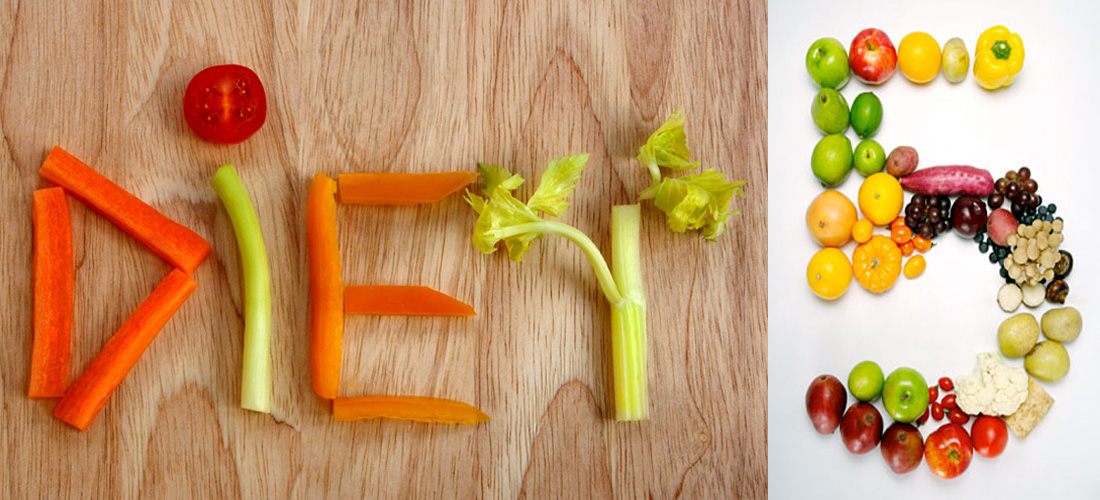 Cramping pain, stomach cramps can be minimized by resorting to a balanced diet and stress management.
Cramping pain, stomach cramps can be minimized by resorting to a balanced diet and stress management.
From the diet is required to exclude:
- fresh and hot baked goods;
- fried, fatty, spicy, salty and smoked dishes;
- strong tea and coffee;
- hot and cold dishes;
- rough food;
- spices, salt and seasonings;
- alcoholic beverages.
Dieting should last at least 3 months. Be sure to follow the diet. Eat food should be in small portions up to 7 times a day. At bedtime, it is helpful to drink warm skimmed milk.
- adhere to the daily regimen;
- perform moderate exercise;
- get enough sleep;
- try to minimize stressful situations.
How to remove spasm when it appears? Stomach cramps can be treated with medication. Therapy will differ depending on the reason for their appearance. Apply means antispasmodic group (Drotaverinum, Spazmalgon, No-shpa). They help to relieve smooth muscle spasm. The use of prokinetics contributes to the promotion of food through the gastrointestinal tract, leading to normal movement of the walls of organs. In some cases it is necessary to reduce the level of acidity. To do this, use drugs that reduce secretory functions:
- H2-blockers of histamine receptors (Ranitidine);
- aluminum-magnesium antacids;
- proton pump inhibitors (omeprazole).
 If stomach pains are associated with disorders of the nervous system, the use of sedative medications (valerian) and antidepressants is required. These drugs have a narrow range of effects. Some drugs (Iberogast) can provide comprehensive treatment of cramping abdominal pain. For organic cramping stomach pain, treatment is prescribed after examination and detection of the pathology provoking them. Healing should be comprehensive. It lasts a long time. It is also important to diet and proper lifestyle.
If stomach pains are associated with disorders of the nervous system, the use of sedative medications (valerian) and antidepressants is required. These drugs have a narrow range of effects. Some drugs (Iberogast) can provide comprehensive treatment of cramping abdominal pain. For organic cramping stomach pain, treatment is prescribed after examination and detection of the pathology provoking them. Healing should be comprehensive. It lasts a long time. It is also important to diet and proper lifestyle.
Complete therapy for cramping pain may include reflexology, homeopathy, and herbal medicine. How to remove spasm with the help of folk methods? The efficacy of folk treatment of stomach pain is always highly individual. To remove it perfectly proved:
- Mint tea. 2-3 tsp. dry grass plants should be poured 1 cup boiling water. After 30 minutes, the tool is ready for use. It is drunk warm during the day, diluted with boiled water in a 1: 1 ratio. In addition, mint has a calming effect on the nervous system.
- If the pain needs to be quickly relieved, it is recommended to take motherwort juice. 1 tsp. fresh juice should be diluted in ¼ cup of boiled warm water and drink.
- When strong cramps are advised to use a mixture of nettle, St. John's wort and meadowsweet flowers. Dried plants take 2 tbsp. l and pour 0.5 liters of boiling water. Infuse of grass should be 60 minutes. After that, drink 1 cup of infusion. The remaining agent is divided into 3-4 parts and take within 24 hours.
- It helps to relieve spasms of massage in the stomach.
- Infusion of chamomile and immortelle flowers will help to relax the gastric muscles, reduce inflammation. 2 tbsp. l 250 ml of boiling water is poured over the herbal mixture. Insist about 30 minutes. Consume 3 times a day for half an hour before a meal in 100 ml for 21 days.
- Perfectly relieves pain when stomach cramps are a mixture of honey and fresh carrot juice. You can simply chop the carrots on a fine grater and add a little honey. The mixture is consumed 30 minutes before meals.
- Infusion of carrot seeds well relieves pain. 1 tbsp. l seeds poured into 250 ml of boiling water and insist in a thermos.
Cramping stomach pain causes, symptoms and treatment in each case are individual. But if the pain syndrome lasts for more than 7 days, fever or blood in the stool is observed, then you should seek help from specialists.
Cramping, triggered by various pathologies of the gastrointestinal tract, require quite a long treatment. At the same time there is a risk of developing all sorts of complications. Preventing ailment is much easier than recovering from it. Proper, balanced, regular diet is one of the most important requirements in the prevention of gastric cramps.
The main organ of the digestive tract can be sore for various reasons. Worry should be in cases where malaise occur frequently and do not go away without painkillers. The causes of such conditions may be different, but it is important to determine in time the factor causing pain, so as not to miss the development of pathological processes.
Main reasons
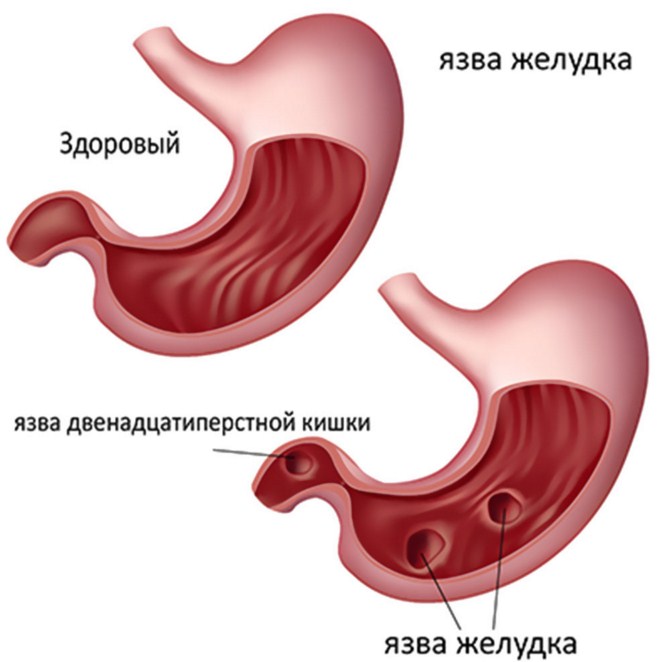
- Inflammation of the mucous membrane. Starts due to the abuse of spicy, fried or spicy foods. Alcohol, smoking and frequent stress also have a destructive effect. For such a condition is characterized by bloating, bad breath, weakness, the urge to vomit.
Failure to maintain a healthy lifestyle and proper nutrition often leads to pain in the stomach. With timely correction of lifestyle and nutrition, you can stop unpleasant symptoms and completely get rid of the causes of pain.
- Disruption of the pancreas. Enzymes are necessary for digestion, and this organ is responsible for their production. When they are not enough, the food lingers in the stomach for a long time, irritates the walls of the body, which also causes pain. According to medical records, pancreatic dysfunction suffers every third person on the planet. In order to control the production of enzymes prescribed drugs that stimulate digestion.
- Disruption of the stomach. Manifested by problematic digestion, frequent flatulence, heaviness in the stomach. In medical practice, this condition is called dyspepsia. The stomach hurts after each meal, reminds of itself with aching and pulling sensations in the epigastric region. Negative sensations are also associated with the disorder of the pancreas, they occur due to frequent stresses. Such illness is treated with drugs from pancreatitis.
- Ulcerative diseases. These causes are the most dangerous, in some cases, internal bleeding may develop. Therefore, if the stomach is cut after eating, you should not delay the visit to the doctor. An ulcer has a hereditary predisposition, it develops against the background of constant stress and unhealthy diet. With timely diagnosis, it can be treated with medication, otherwise surgery is required.

Where and what hurts?
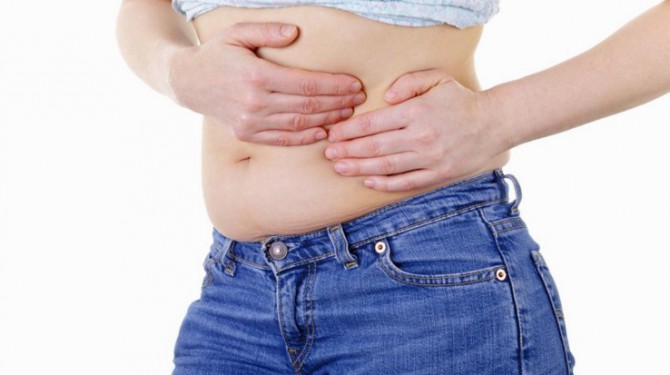
Severe pain in the stomach can cause problems not only the main organ of digestion, but also nearby organs:
- Soreness below the level of the ribs “speaks” of abnormalities in the cardiac region, abnormalities of the esophagus, or problems with the liver.
- Cutting pains in the right hypochondrium indicate cholecystitis or gallstone disease.
- On the right side of the epigastric region can give duodenitis.
- Cramping pain in the stomach and near the navel are a sign of abnormalities in the bowel or pangastritis.
- If the stomach is sharply ill, it can equally indicate gastritis and peptic ulcers. To verify the diagnosis, you must pass the test.
Types of pain

The type of pain depends on its manifestation regarding the use of food.
- When pain occurs immediately or a few minutes after eating, it indicates the presence of inflammatory processes in the lower regions of the stomach.
- Discomfort after a few hours is characteristic of cancer, pancreatitis, peptic ulcer diseases.
- When the stomach hurts at night and on an empty stomach, the risk of a pre-ulcer state or an already formed ulcer is great.
Soreness in the stomach is not always the cause of digestive disorders. Discomfort can be caused by problems with the liver, kidneys, gall bladder, and even with the heart.
Gastralgia, or stomach pain. The nature of the pain is cramping. Localization - the 4th intercostal space in the epigastric part of the peritoneum, just above the umbilical horizontal, directly in the subchestral costal arch. This place is called the solar plexus and is the visual area of the stomach.
The occurrence of gastric spasm can be provoked, and may be the result of neurosis. Characteristically, gastric pain of varying intensity often becomes the body’s response to hysteria, a stressful situation, deep feelings, and internal aggression.
What if my stomach hurts? What to do to relieve pain, which does not give the opportunity to think radically, almost completely turning off the mind? Consider the occurrence of gastric cramps.
The intensity of stomach cramps may be different. From insignificant but unpleasant heaviness in the stomach during chronic gastritis, which patients sometimes do not attach importance to, to severe cramping pain, leading to a ghostly consciousness.
Strong and very strong stomach cramps accompany duodenitis, gastric ulcer and duodenal ulcer, oncology. In case of perforation of the ulcer or perforation of the stomach, the pain becomes non-lethargic, up to the shock caused by pain.
It is impossible to diagnose the disease with respect to the strength of the pain in the area of the stomach, because each patient responds individually to pain. It has long been noted that in patients who have undergone resection of the stomach, the threshold of pain perception is somewhat underestimated, and in a separate postoperative category of patients pain is completely absent.
Patients have bouts of severe, often very severe pain, encouraging patients to take immediate steps to eliminate them. When perforation or perforation of the stomach walls occur unbearable pain that can cause a shock.
Acute duodenitis also causes pain to a great extent.
The degree of pain cannot characterize the disease itself, since the susceptibility to pain is different for each patient. For people who have undergone surgery on the stomach, the threshold of pain perception is somewhat underestimated, and in a separate postoperative category of patients, the pain is completely absent.
Etiology of gastric spasm
Causes of gastric spasms can be, as the main diseases, such as gastritis, duodenitis, peptic ulcer, and the consequences of various complications after infectious diseases, or in the presence of associated processes. For example:
- solarium causes a burning sensation in the stomach;
- a decrease in gastric secretory activity causes heaviness in it;
- characterized by a feeling of swollen stomach.
As a rule, stomach pains are associated with a whole complex of associated diseases - colitis, pancreatitis, cholecystitis.
Diagnostics and power

When describing the clinical picture of stomach cramps, first of all, the nature of pain, and the time of onset of a wave of pain after a meal is taken into account. With a disease such as gastritis, the pain manifests itself almost immediately, especially when eating foods with a sharp or sour taste.
Pain in the stomach after one and a half hours can give, as the inflamed canal of the pylorus, and peptic ulcer.
But the answer to the reception of any food in pain, only after two hours. Vegetable food of a rough consistence, canned food and vegetable marinades, black bread is that food which is contraindicated at various diseases of a stomach as at their use pain arises almost immediately after reception.
Patients with peptic ulcer disease are recommended frequent split meals. Non-compliance with the regime of eating threatens with “hungry” pain, if the time between meals is an unacceptably long period. From pain relieves the urgent reception of liquid porridge or pureed vegetables, fish or lean meat.
Often a spasm can have a cause not related to food. They can be severe physical exertion, psychological overload, nervous breakdowns, stressful situations. A sharp pain in the stomach under such circumstances can occur in a completely healthy person. In the sessional period, some students had problems related to pain in the stomach, which never later became apparent.
Factors affecting the increase in pain
The circumstances in which there is an increase in pain in the stomach, always coincide with the etiology of the disease. The most common diagnosis of gastritis, in fact, has a multiple etiology. There are gastritis:
- viral infections caused by the organism when the virus settles in the gastrointestinal tract, as well as with a weakened immune system;
- bacterial, caused by the activity of microorganisms Helicobacter pilari, which provoke an inflammatory process and cause stomach pains;
- erosive, resulting from prolonged use of medicinal drugs or alcohol;
- acute, caused by various stressful situations or psychological damage to the patient;
- atrophic and allergic.
The clinical picture of duodenal ulcer or stomach ulcer, as well as survey data on polyps and oncology, confirm the coincidence of the increase in pain with the source of their formation.
Gastric pain caused by overeating, indigestion, physical fatigue, are eventual in nature and cannot be considered a typical source of gastric spasm in a patient.

Some children are prone to the “school-phobia” syndrome - gastric pains that have arisen against the background of fear of visiting an educational institution. In this case, gastric pain occurs on an emotional, rather than a psychological level. But special studies in this area on the occurrence of pain in the stomach of this particular category have not been conducted.
Stomach pain is directly associated with food poisoning. Painful cramps accompany emetic urge.
In some cases, the pain that has arisen in the area of the stomach is characterized by strong tension and duration. With deep palpation, there is a short-term cessation of pain. If the peritoneum is abruptly released, the pain returns with a new force. These are appendicitis manifestations in which it is necessary to call emergency care.
Very often there are cases of gastric pain that accompanies any viral or bacterial infection, for example, sore throat. If stomach pain occurs, it is necessary to contact, first of all, a specialized doctor - a gastroenterologist, and he, if necessary, will recommend the advice of a surgeon or oncologist.
Gastric spasm measures
Gastric pain has a different etiology - from emotional experiences to serious diseases in the stomach and intestinal tract. Intrauterine pain symptoms of muscle contraction can indicate serious diseases, and as an answer to the body, for example, during menstrual pain.
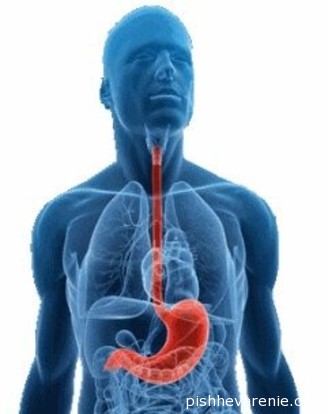
Often, acute pain in the stomach is the body's response to excessive accumulation of undisturbed intestinal gases - And sometimes, a blurred and weak manifestation of pain syndrome can be the result of a serious illness.
Intraperitoneal spasms are difficult to localize, and it is rather difficult to determine the source of the pain. What if my stomach hurts? If the pain starts to get worse and the cramps become more frequent?
- First, you just need to calm down and drink a glass of water.
- Secondly, you can not eat food for several hours.
- Thirdly, when spasms increase, especially if vomiting has joined them, then it is necessary to consult a doctor.
In conclusion, we note that if the causes of pain in the stomach is menstrual syndrome, then medication is needed, which removes the primary source of pain. These can be non-steroidal prostaglandin blockers, for example, Tamipul, Kombispazm or Bolaren.
Cramping abdominal pain may be signs of serious illness.
Causes of cramping lower abdominal pain
The compact arrangement of the internal organs sometimes confuses the person suffering from a painful attack and the doctor. But a specialist will deal with pathology more quickly, because human life is at stake.
Often the causes are caused by problems with the digestive or urinary system.
- Appendicitis. This process of the intestine, in which digestive enzymes are formed, can become inflamed - and this is where the severe cramping pain in the lower abdomen, which is accompanied by fever (up to 39 degrees or more), nausea, headaches, vomiting, weakness.
The delay in this case is life threatening, it is necessary not to take independent measures, but to urgently apply to the polyclinic.
- An inguinal hernia when pinched. The pain is also accompanied by vomiting, diarrhea.
- Inversion of the intestine. At the same time, meteorism develops, due to intestinal incapacity, vomiting begins.
- Dirty hands disease - dysentery. When the urge to toilet (and there may be up to 5 or more), there is pain in the intestines. If the situation does not improve in a day, you need to contact the therapist or the ambulance team. Hazards - dehydration, latent infection that affected the unpleasant symptom.
- Collateral pains in the lower abdomen in women are sometimes triggered by an ectopic pregnancy (the embryo does not attach in the uterus) or by miscarriage, if the fertilized egg is attached in the wrong place, but during the growth broke through the fallopian tube.
A woman can suffer from bleeding, sometimes this pathology leads to serious injuries, and has a negative effect on reproductive function.
In future mothers such pains can be of a training nature (if they hurt a little), but in the presence of bleeding, this is an excuse for an urgent call to the doctor at home. Timely treatment can save the life of a child and a woman.
Male sex is also vulnerable to pain, but because of sexual diseases, it occurs infrequently. The constricting nagging pains in the lower abdomen, triggered by sexually transmitted infections, may become witnesses of prostate inflammation. Urolithiasis is not excluded.
How to alleviate the condition?
Self-medication in cases of unbearable pain is a questionable event. Painkillers only prevent the correct diagnosis, a hot water bottle with warm water sometimes increases the bleeding, the bath for dysentery becomes inappropriate.
If the pain is periodic, associated with ovulation, you can contact a gynecologist
And if the pain is unbearable, you should not hesitate to call the clinic. In this case - not to modesty.

